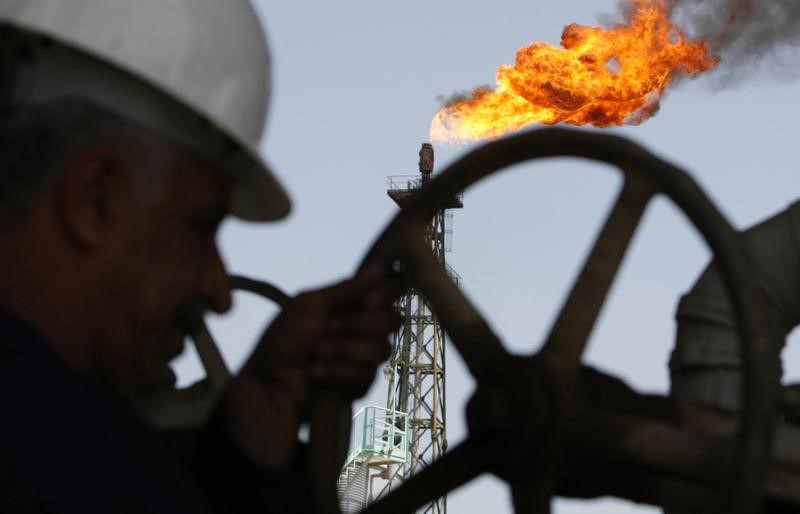Is this U.S.-China selloff a buy? A top Wall Street voice weighs in
By Geoffrey Smith
Investing.com -- It's a quiet day on world stock markets, as U.S. markets remain closed for the Martin Luther King holiday and European CEOs put the finishing touches to their pitches at this year's World Economic Forum in Davos, which gets underway on Tuesday. Oil prices spiked after events in Libya and Iraq gave a reminder of lingering geopolitical risks at the weekened. The International Monetary Fund will release its latest forecasts for global growth from Davos at 8 AM. Elsewhere, U.K. house prices rose by the most in any January in at least 18 years, as pent-up demand was released after December's general election. And palladium hit yet another new record high. Here's what you need to know in financial markets on Monday, 20th January.
1. Oil prices spike on Libyan, Iraqi moves
Oil prices advanced but gave up most of their weekend gains after unrest hit production in Iraq and Libya.
Security guards shut down production at the 70,000 barrel a day Al Ahdab field at the weekend in a protest demanding permanent employment contracts. There where also anti-government protests further afield, and other protests that closed down the border with Iran in protest at Iranian influence in the country, according to reports.
Unrest in Iraq has the capacity to disrupt far bigger oil flows than Libya, given that it is the second-biggest producer in OPEC with daily output of over 4.5 million barrels a day. However, it is Libya where geopolitics are having the biggest immediate impact. Russian-backed warlord Khalifa Haftar was reported to be on the verge of shutting down the country’s largest field, Sharara, with a capacity of 300,000 b/d, in an effort to keep up the pressure on UN-recognized Prime Minister Fayez al Sarraj, as the parties thrash out the details of a peace plan.
By 6:20 AM ET (1120 GMT), U.S. crude futures were at $58.88 a barrel, up 0.5%, while Brent was up 0.7% at $65.29.
2. IMF to release updated global forecasts
The International Monetary Fund is due to release its latest forecasts for global growth at 8 AM ET (1300 GMT) as business and world leaders descend on Davos for this year’s World Economic Forum.
The IMF spent most of last year cutting its growth forecasts under the pressure of global trade conflicts and the prospect of a disorderly Brexit. Its forecast of 3.0% growth for 2019 was the lowest in a decade. In its latest update, the Fund said it expected world GDP growth to rebound to 3.4%. That was conditional on the avoidance of a disorderly Brexit and of any further escalation to the U.S.-China trade conflict. With both of those conditions –- for now –- in place, the risk of further downgrades looks to have been reduced.
3. U.K. house prices bounce
The U.K. economy produced its first sign of a return of optimism after the general election in December settled the country’s near-term political direction, lifting at least some of the many uncertainties that had hobbled it in 2019.
Online realtor Rightmove said house prices had increased 2.3% on the month to an average of 306,810 pounds ($400,000). In London, they were up 2.1% from December, signalling a break from a downtrend that has been in place since the U.K. voted to leave the EU in 2016. Both upswings were the largest for any January since Rightmove began compiling its index 18 years ago.
“There now seems to be a release of this pent-up demand,” said Rightmove Director Miles Shipside. “While there may well be more twists and turns to come in the Brexit saga, there is now an opportunity for sellers to get their property on the market for a spring move unaffected by Brexit deadlines.”
4. China on virus alert ahead of New Year holiday
A pneumonia-like virus spread in China, with the number of active cases tripling and reported incidents coming from an increasing number of major towns, including the capital Beijing.
Chinese authorities have now confirmed three fatalities, while the government of the central Chinese city of Wuhan, where the newly discovered coronavirus appears to have originated, said the number of infected patients had leaped from 62 on Sunday to 198 as of Monday.
The outbreak comes at a time when tens of millions of Chinese are planning to travel internally for the Lunar New Year holiday.
5. Palladium goes from strength to strength
Palladium futures hit a new record high of over $2,300 an ounce amid a sustained and increasingly frantic quest for the metal from automotive groups fearing supply disruptions in South Africa, the world’s biggest producer.
Chronic problems with power supply due to the parlous state of national electricity monopoly Eskom have put huge questions marks over the ability of mines to continue operating.
Palladium is in a “real sweet spot” of recovering industrial production, Bloomberg quoted UBS Wealth Management’s executive director for commodities Wayne Gordon as saying. He pointed to improving demand due to strong car sales as well as the looming supply constraints.
The collapse in sales of diesel-powered cars has prompted increased demand for palladium, which is used in catalytic converters for gasoline-powered vehicles.
By 8:20 AM ET, palladium futures had retraced slightly to $2,280.90 an ounce, up 2.5% on the day.
